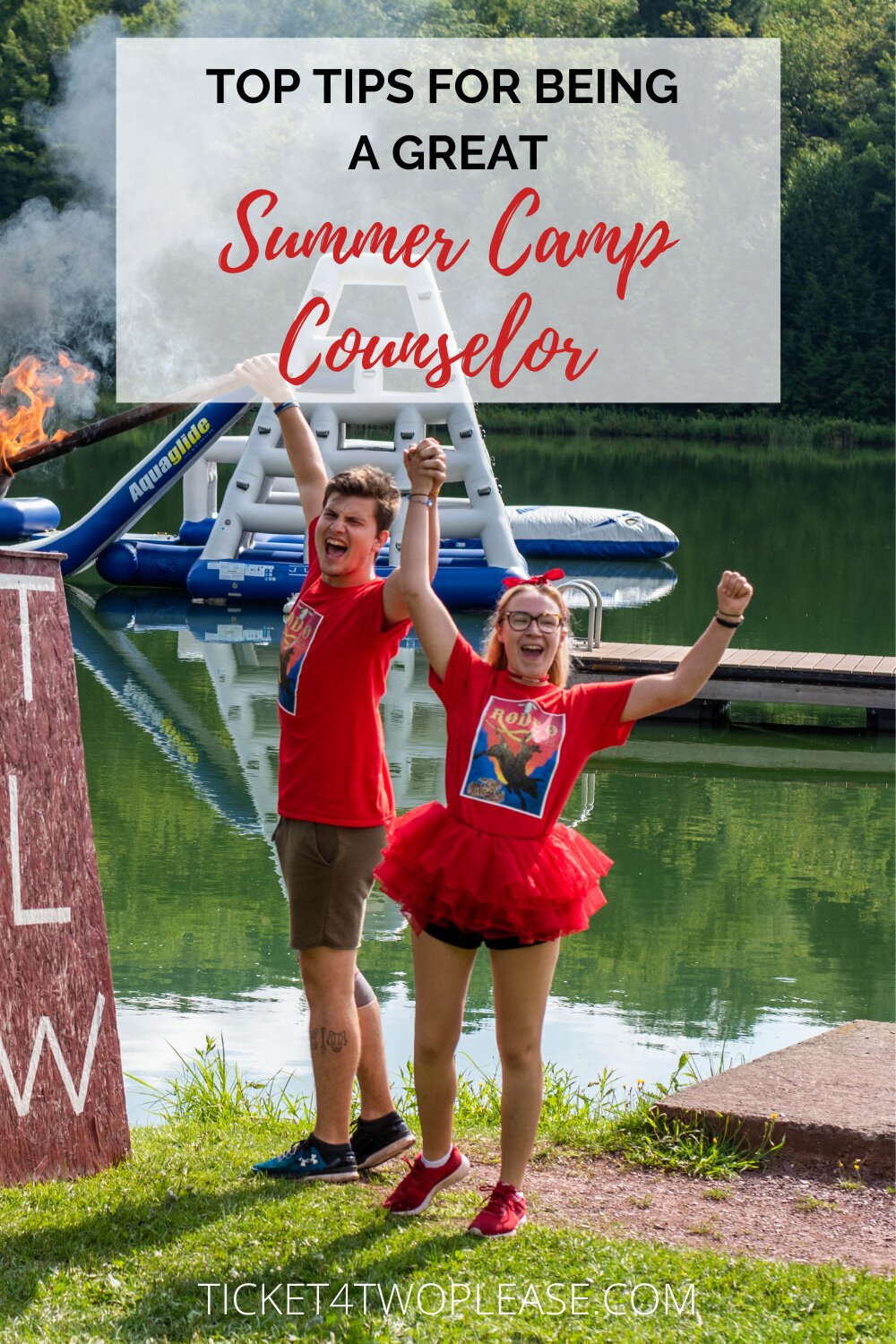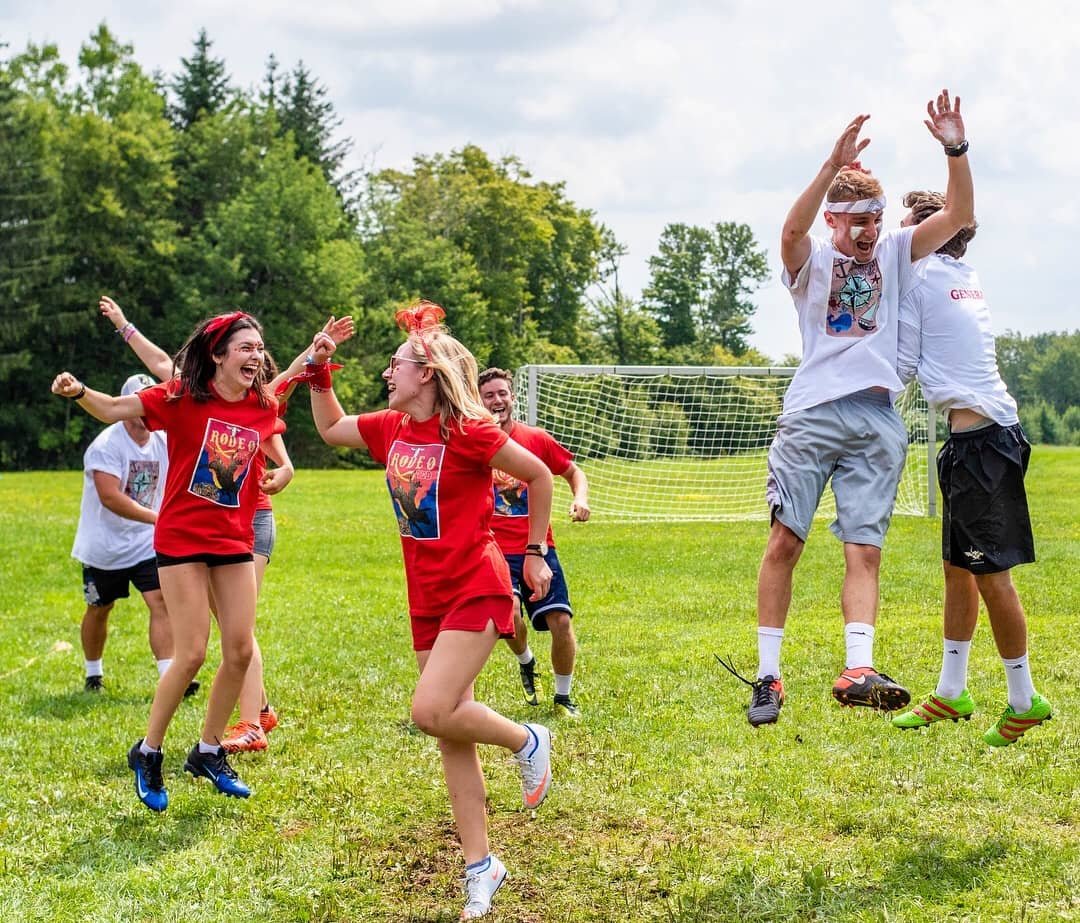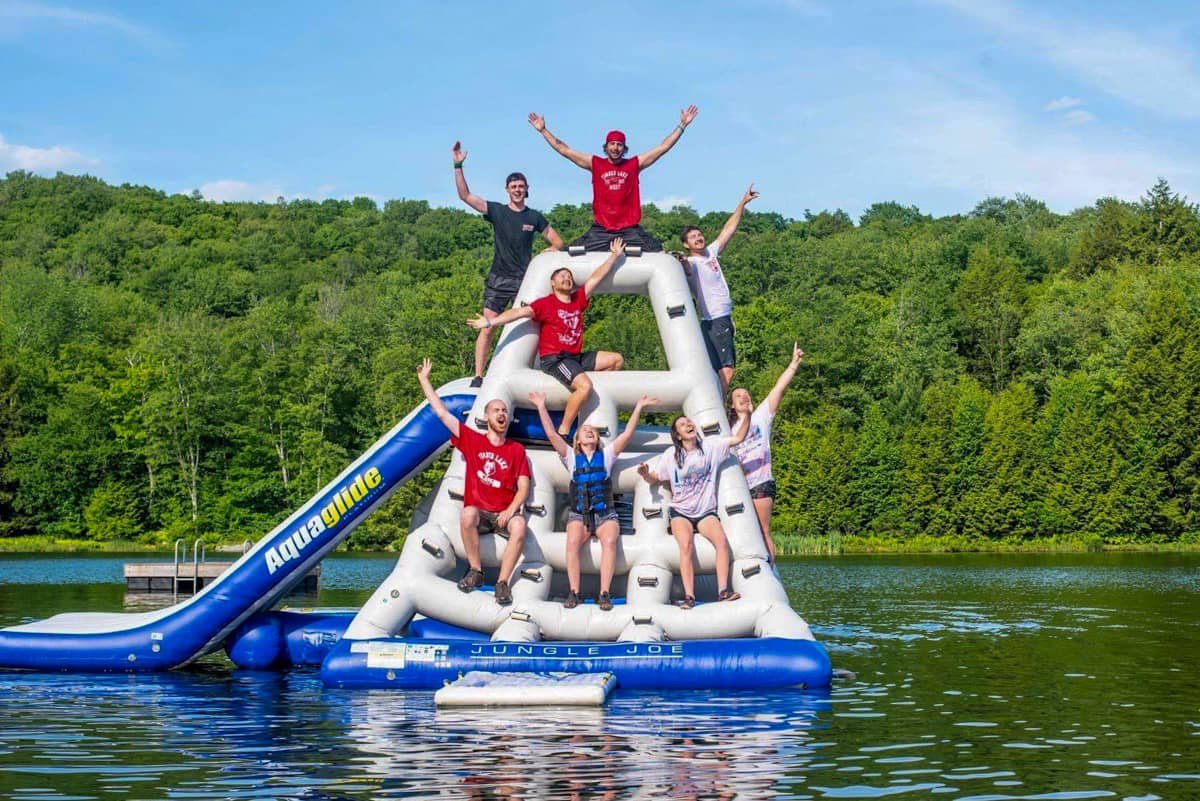10 Tips For Being A Great Summer Camp Counselor
So you’ve managed to secure a job working at a summer camp, and now you’re wondering how to be a good summer camp counselor?
What makes a great summer camp counselor?
Perhaps you’ve never worked with children before, or you tried a long time ago and it didn’t go so well?
With 13+ years of experience working at Summer Camp, we have a fair idea of what makes a good, and a not-so-good, counselor.
It has been our job to evaluate counselors, letting them know how well they are performing and highlighting areas where they should strive to improve.
We are going to guide through some tips on how to become the best possible counselor, so that the kids have a great time and you get to have the best summer of your life.
Bonus Tip: download a free wise account before you get to the USA so you can easily transfer your camp wage back to your home bank account without having to worry about exchange rates and hidden transfer fees!
Be as enthusiastic as you can
It cannot be underestimated how important this tip is going to be for your summer.
Everybody finds it easy to be enthusiastic when it comes to banana-boating or go-karting - they are activities that everybody loves, so you don’t need to help motivate your campers to try them out.
Although it is still important to remain as enthusiastic as you can towards these activities, it is during the periods that are potentially less desirable where your enthusiasm becomes hugely significant.
Rainy days at camp are super tiring and can really drag. Instead of having 3 periods of basketball, climbing and swimming, you’ve been given painting, lego and indoor rock, paper, scissors. Without really enthusiastic counselors, these activities are going to be a pretty tough task.
By giving 100% as a counselor at these periods, you’re going to lift the spirit of your campers and give them a new lease of energy. All of sudden, they are all screaming at the top of their lungs, chanting for their friend as they’ve reached the final of the rock, paper, scissors tournament you just created.
Remember: any activity at camp can be memorable as long as you’re willing to be enthusiastic.
To be a good camp counselor you need to be a good listener
When working with kids, it’s vitally important to remember that they just want to be heard. If they have an opinion on something, whether it’s right or wrong, they just want to be listened to.
Being an active listener, by fully taking in what is being said by the camper and responding appropriately, is going to make a greater-lasting impression than simply nodding and adding in a few ‘mm-hmms’ every now and then.
Although there are lots of different types of summer camps, one thing that remains the same is that listening to your campers is going to be one of the most important elements of your job this summer.
Listen attentively to your campers and co-counselors. More often than not at camp, you’re going to learn more about a camper by listening to them, rather than talking at them.
Be willing to give anything a try
It may sound cliché but one of the Camp America expectations is that you must be willing to push yourself and give absolutely anything a try. After all, how will you successfully convince a camper to try the climbing wall when you’re not willing to try it yourself?
Outside of the camp environment, you may not be terribly sporty or active and would never give basketball a go. In camp however, you are there to give everything a go and to act as a role-model to the camper.
Your summer camp should promote an environment and a culture whereby everybody, campers and counselors, should feel confident and comfortable to try something new.
Take the lead in trying something out and your campers will soon follow suit.
Try never to shut a child down
Sometimes this can happen without you even noticing, like when you’re tired or when a camper comes up with a suggestion that you know is never going to work - your go-to response is invariably going to be ‘no’.
What does that ‘no’ say to the camper though? It says that they aren’t going to contribute their ideas again for the rest of the summer. It says that you don’t respect their opinion.
Hear the camper out, and if needs be, go with their suggestion even if you know it’s not going to work out. At least that way, they will know they were listened to and that their proposal was taken seriously.
One of the reasons why you should work at a summer camp is to instill confidence in the campers. Shutting them down is certainly not going to promote that.
Avoid using the word ‘but’ with campers
This is a tip we were taught by leading child therapist Bob Ditter, and it’s going to sound very odd to begin with.
To a child, when you say the word ‘but’, you are essentially saying, ‘ignore the first half of the sentence and listen to the second half instead’.
Picture this - a camper comes up to you on a really hot day and says they don’t want to play football.
Your standard response may look something like, ‘I know you’re hot, BUT you have to play anyway’. Essentially, you are just telling the camper they have to play and that you don’t care that they’re hot - they are not going to respond well to that.
If you subtly change your response, you’re more likely to get stronger feedback from the camper.
‘I can see that you’re very hot. Let’s both play together before we go inside to cool down’. You’ve first acknowledged how they are feeling (‘I can see that you’re very hot’), and then suggested the next course of action (‘Let’s both play together before we go inside to cool down’).
It’s a very subtle difference in your language, and it will make you a much stronger summer camp counselor.
Don’t TRY to be the favourite counselor - it won’t work
Everybody always seems to assume that if you’re the favourite counselor, you will be the best counselor. Often, this can actually be the opposite.
To become the favourite counselor, you must let campers get away with things they shouldn’t be doing. You have to be giving priority to some campers over others. You have to let the campers do things that you know the other counselors would say ‘no’ to. See where we’re going with this?
The trick to becoming a better counselor, is to be respected. You earn respect by listening to campers, sending a consistent message on camp rules, and equally distributing your time and effort between the entire group.
Once you understand this, the whole bunk will naturally respect and like you.
Avoid undermining your fellow counselors
This tip follows the ‘not playing the favourite counselor role’ advice.
To be the ‘favourite counselor’, you often have to tell campers they can do something that another counselor has said they can’t. By doing this, you are undermining the authority of the other counselor.
The next time it comes to that counselor instructing the group to do something, they won’t listen; instead, they choose to follow your lead. This makes the group dynamic very difficult and will cause a lot of tension within the bunk.
Promoting a consistent message as a team of counselors is very important - the more you work together with your co-counselors, the easier your summer will be and the better counselor you will become.
Similarly, if you don’t agree with a counselors suggestion or approach, it’s best to take it up with them separately, away from the campers. Nothing is worse than seeing two counselors arguing or disagreeing in front of the group.
Creative counselors are the best camp counselors
It’s amazing how much fun you can have at camp when thinking outside the box.
If a camper is in their 4th week of camp, the routine of camp life will be starting to take its toll on them. Their favourite activity at the beginning of the summer was soccer, but now they seem disinterested when you tell them it’s time to play.
To be a good summer camp counselor, you must be creative to encourage them to play soccer that day. Instead of doing a traditional soccer match, perhaps you could facilitate a game where half of the players are blindfolded and the other half has to instruct them on where the ball is?
Blindfolded soccer is an extreme example, but thinking differently and being creative is key to becoming a great summer camp counselor.
Hint: it doesn't have to be too crazy to be creative. Using a speaker to play music to encourage the campers to tidy the bunk or brush their teeth is a simple way to think outside of the box. By the way, a speaker is one of those great gift ideas for summer camp counselors for exactly this reason.
There’s no need to shout at a camper
At camp we often say that the only time you should have to raise your voice is when you are trying to get the attention of a loud group. Shouting in this scenario is solely to get the group to quiet before you can return to your normal speaking voice. This is perfectly acceptable.
If a camper has done something wrong, new, inexperienced counselors tend to shout - akin to when a parent is telling a child off. The difficulty with this approach comes when the camper does something wrong again. You’ve already resorted to shouting. Where are you supposed to take it now?
There will be times during the summer when a camper does something wrong, and as their counselor, you are there to instill discipline. What this discipline should look like, however, is quietly removing the camper away from the group, sitting them down, and talking through what they did wrong and why they did it.
Shouting at a camper isn’t going to teach them not to do it again - talking with them one-on-one, understanding their motivation for originally doing it, and suggesting alternative ways to deal with the situation is going to teach them.
Attempt to tell children what they ‘should’ do rather than what they ‘shouldn’t’
This is a very basic psychology technique and something that, with a little bit of practice, is going to make you a better counselor this summer.
Instead of saying ‘don’t talk’, perhaps you could say ‘please be silent’. Rather than ‘don’t talk with food in your mouth’, try ‘chew your food properly before talking please’.
It sounds like you are saying the exact same thing, and in essence, you will be, but it is surprising how much of a difference it can have.
When you tell a camper ‘don’t do x and y’, their immediate response will be to try doing ‘x and y’. So if instead you tell them to ‘do x and y’, you are more likely to get a better outcome.
‘Do’ rather than ‘tell’
All too often, we will see counselors who have the best intentions and know exactly what their campers should be doing but won’t know how to convey that properly.
Take, for example, a counselor lying on their bed during clean-up time saying ‘Jimmy, tidy your area please’. Jimmy hears what he should be doing but sees the counselor doing the opposite. This isn’t going to motivate Jimmy to clean his area of the bunk.
If the counselor instead chose to tidy his own area while instructing Jimmy, he would be demonstrating the desired behaviour and would see a far better response from Jimmy. In this scenario, Jimmy is more likely to copy the actions of the counselor and start cleaning his section of the cabin.
A good summer camp counselor should always be role-modelling the behaviours they wish to see from their campers.
The question of ‘how to be a good counselor?’ isn’t easy to answer, but we hope these tips for being a great camp counselor have helped set you up for being the best camp counselor this summer.
We hope these 10 tips for being a great summer camp counselor will help you this summer. If it is your first summer at camp, then you should also read our ultimate summer camp counselor packing list. Here, you will find a complete breakdown of everything you need to pack, what the essentials are, and what you can probably survive without.















